 |
CSDE NEWS & EVENTS
July 15, 2024
|
CSDE Research & Highlights
|
CSDE Hosts D4 Hack Week on Social Science and Climate-related Flooding with Support from NOAA and NIH
|
CSDE affiliates Ann Bostrom, Sara Curran, and Sameer Shah are collaborating on an upcoming UW-hosted 2024 D4 Hack Week: Disasters, Demography, Disparities, and Decisions (September 9-13). This week-long hack-a-thon is supported by a partnership between CSDE, the National Science Foundation AI Institute for Research on Trustworthy AI in Weather, Climate, and Coastal Oceanography (AI2ES), and the UW's eScience Institute. Funding for the workshop derives from a grant from NOAA to AI2ES (Award NA23OAR40505031) and a center grant to CSDE (P2C HD042828) from the Population Dynamics Branch at the Eunice Kennedy Shriver National Institutes of Child Health and Human Development.
During the D4 Hack Week, seven interdisciplinary teams of 40 researchers from across the country will join up to focus on the data and analytic challenges of linking climate- and weather-related impacts and mitigation efforts to human behavior, health, and well-being by:
- Investigate the human behavior and societal adaptive responses to, and impacts of, severe weather and climate-related events, particularly flooding associated with atmospheric rivers, hurricanes, and severe storms, but also including other extreme events such as heat or fire.
- Address the research gaps linking mitigation to adaptation and resilience in relation to severe weather. This will involve exploring co-benefits for human well-being from climate adaptation strategies that will further contribute to resilience to extreme weather events and climate mitigation.
- Explore pathways to better understand the dynamics of decisions and population disparities in responses to and impacts of past extreme climate / weather events.
The workshop will create improved data products and methods (data integration, data assimilation, analytic tools, new approaches to analyses) that integrate social and weather and/or climate data across space and time, through interdisciplinary collaborations. Data products should inform decision models that can guide decision making to address the needs of individuals, households, neighborhoods, and communities, with projections of impacts on the scales of minutes to hours, days, weeks, or years. Data and their analyses should be capable of informing impact analysis and risk reduction planning.
The larger initiative is part of a NOAA investment of $10 million to support social science research related to flooding services and products. This is part of President Biden’s Investing in America agenda. The funding will allow NOAA to understand how the public uses emergency communication during atmospheric events such as flooding to then evaluate how to best help communities prepare for weather emergencies.
(read more)
|
 |
UW Geographers Michael Brown and Larry Knopp Quoted in Seattle Times Article
|
CSDE Affiliates Michael Brown and Larry Knopp were recently quoted in the Seattle Times article, “How Capitol Hill became Seattle’s gayborhood.” The article includes various people’s experiences coming to Capitol Hill over the past decades. Capitol Hill became a center for members of the LGBTQ+ community and many began to move into the various neighborhoods surrounding the area. Dr. Brown and Dr. Knopp share their expertise and research as geographers on the events and other key points that built up Capitol Hill as a hub for different communities, especially the LGBTQ+ community. Details of their map Claiming Space and of the models they have developed linking the formation of LBGTQ+ neighborhoods to urban economic, cultural, and political changes, such as suburbanization and gentrification, are included in the article. This story goes into detail about the history, experiences, communities, and places of Capitol Hill.
(read more)
|
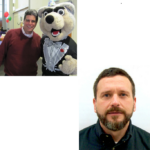 |
Kemi Doll Featured in Health Day Article Discussing Ultrasound Reliability in Spotting Endometrial Cancer in Black Women
Amy Bailey Speaking at NIH UNITE Virtual Structural Racism Workshop
|
CSDE Affiliate Amy Bailey, Visiting Scholar at UW CSDE & Associate Professor of Sociology at University of Chicago Illinois, will be speaking at the National Institute of Health’s UNITE initiative virtual Structural Racism Workshop. This workshop is a two day event from July 18-19, 2024, and Dr. Bailey will be speaking on July 18th from 11:35 am-12:15 pm EST (8:35 am-9:15 am PST) in Session 1: History of Race, Race-Making, and Racism From the Humanities, History, and Behavioral and Social Sciences. This workshop will bring together researchers, clinicians, and community partners with expertise in fields such as social and natural sciences, law and criminal justice, education, public policy, social work - as well as biomedical, behavioral, and public health. Register through the link to secure a spot.
(read more)
|
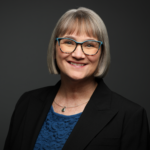 |
Min Hee Kim Publishes Article in the American Journal of Epidemiology
|
CSDE Affiliate Min Hee Kim (Institute for Health Policy Studies, UCSF) published an article in the American Journal of Epidemiology, titled “Mediating pathways between neighborhood disadvantage and cardiovascular risk: Quasi-experimental evidence from a Danish refugee dispersal policy.” While the neighborhood disadvantage is associated with increased cardiovascular disease risk, it is unclear which mechanistic pathways mediate this association, Leveraging a natural experiment in which refugees to Denmark were quasi-randomly assigned to neighborhoods across the country during 1986-1998 and using 30 years of follow-up data from population and health registers, this study applied counterfactual mediation analysis, showing cumulative income (but not unstable employment or poor mental health) mediated 6%-28% of the disadvantage effect on these outcomes. As the world contends with multiple global refugee crises, this study supports the robust income support for refugees settled in materially disadvantaged neighborhoods in protecting CVD health.
(read more)
|
 |
Chen Co-authors New Study on Mobile App Use Among Persons with Fibromyalgia
|
CSDE Affiliate Annie T. Chen (Biomedical Informatics and Medical Education) co-authored a new article in the Journal of Pain, entitled “Mobile App Use among Persons with Fibromyalgia: A Cross-Sectional Survey“. Persons with fibromyalgia experience a diverse set of symptoms. Recommendations for management generally focus on multidisciplinary approaches involving multiple modalities. Mobile apps can be an essential component for self-management, yet little is known about how persons with fibromyalgia use mobile apps for health-related purposes. A cross-sectional survey (N=663) was conducted to understand the real-world use of apps among persons with fibromyalgia.
(read more)
|
 |
Dan Goldhaber Featured on NPR Education Segment in Morning Edition
Daniel Promislow Featured in The New York Times Science Special Pets Section Discussing the Dog Aging Project
|
CSDE Affiliate Daniel Promislow, Jean Mayer USDA Human Nutrition Research Center on Aging at Tufts University and Co-Director of the Dog Aging Project, was recently featured in the New York Times article, “How Science Went to the Dogs (and Cats).” The article discusses how research on canine cognition and behavior has increased over the last couple of decades and includes different pet projects from various universities and research centers across the country. Dr. Promislow’s research with the Dog Aging Project includes information on how dogs with active lifestyles are less at risk to develop “doggy dementia”, how homes with multiple pets can be good for canine health, and asks the question “What are the biological, environmental and lifestyle factors that influence healthy aging in dogs?”
(read more)
|
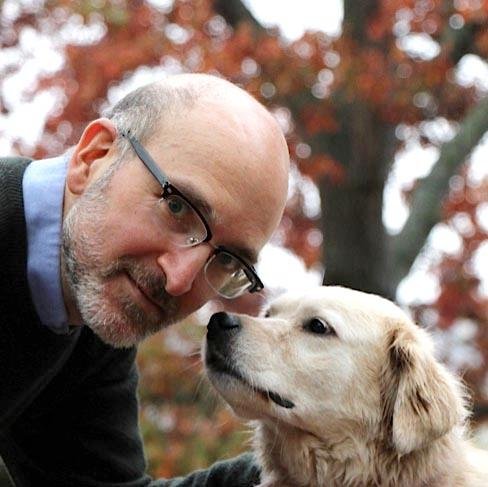 |
|
|
Updates from the CSDE Research & Training Cores
|
*New* NIH Climate Change and Health Initiatives: Climate and Health Scholars Program (Due 7/15/24)
NIH Request for Information (RFI) on NIH-Wide Strategic Plan for Sexual and Gender Minority (SGM) Health Research (NOT-OD-24-122) (Due 7/15/2024)
|
NIH is publishing this Notice to solicit input from the scientific research community, clinical practice communities, patient and family advocates, scientific or professional organizations, federal partners, HHS and NIH staff, other interested constituents; and the public on topics to consider for the next strategic plan to optimize NIH’s research investments. This request is to inform the Fiscal Years (FYs) 2026 – 2030 NIH-Wide Strategic Plan for Sexual and Gender Minority Health (SGM) Research. See the full RFI here.
(read more)
|
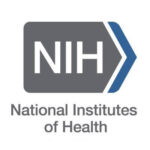 |
*New* NIH Unite Structural Racism and Health Workshop – Virtual Through Zoom (7/18-7/19)
|
The National Institutes of Health’s UNITE initiative is hosting a two-day virtual workshop on July 18–19 entitled “Interdisciplinary Approaches to Understanding and Addressing Structural Racism and Health.”
This workshop will bring together researchers, clinicians, and community partners with expertise in fields such as social and natural sciences, law and criminal justice, education, public policy, social work—as well as biomedical, behavioral, and public health.
Workshop objectives include the following:
- Review historical data and perspectives surrounding structural racism.
- Showcase research on new methodologies, advancements in understanding the drivers of structural racism, and strategies for cultivating meaningful partnerships.
- Share best practices and lessons learned from interventions aimed at addressing structural racism.
- Through breakout discussions, identify recommendations for advancing what is known about structural racism and health and how to collaboratively approach solutions.
Register Here: Meeting Registration - Zoom (zoomgov.com)
(read more)
|
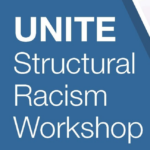 |
Register Now for NIH OBSSR Director Rebeca Wong’s Webinar: The Fabric of Aging in Mexico: Patterns and Potential (07/23/2024)
|
In her webinar, Dr. Wong will explore the features of population aging in Mexico. She will discuss findings from the Mexican Health and Aging Study (MHAS), a 20+ year longitudinal study that has evolved and grown with the field of population aging. She will examine evidence-based patterns in physical and cognitive function, chronic conditions, and social/economic resilience, highlighting the critical roles of childhood conditions, U.S. migration, employment, and family support in old age. Dr. Wong will also provide an overview of the pressing needs and potential for future research based on these themes.
July 23, 2024, 2:00 p.m. – 3:00 p.m. ET
Presented by
Rebeca Wong, Ph.D., University of Texas Health San Antonio
Register for the Webinar
(read more)
|
 |
*New* NWFSRDC Invites you to a Webinar on July 24 from 11am-12pm to Learn How to Search and Apply for Access to Restricted Microdata from U.S. Federal Statistical Agencies (7/24/2024)
|
The Standard Application Process (SAP) is a common application for applying for access to confidential data from across U.S. federal statistical agencies and units. The SAP is an important part of federal efforts to promote the use of data for evidence-building purposes and is governed by policies established by the Interagency Council on Statistical Policy. Many of the confidential data from SAP participating agencies are only accessible through a Federal Statistical Research Data Center like the Northwest Federal Statistical Research Data Center (NWFSRDC) on the UW Seattle campus.
The NWFSRDC invites you to join the SAP Project Management Office’s upcoming webinar, The Standard Application Process (SAP): How it Works and What to Expect, on Wednesday, July 24, 2024, from 11:00 PM to 12:00 AM PT for new and exploratory SAP users who would like to learn more about the SAP. There will also be an opportunity to ask questions. Presentation topics include:
- An overview of the SAP
- Benefits of the SAP
- Searching and applying for data
- What happens after applying
Please click here to register for the event.
We also encourage you to visit our website or contact us at nwfsrdc@uw.edu to learn more about accessing non-public federal microdata through the NWFSRDC.
(read more)
|
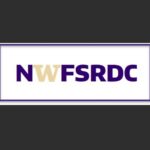 |
Call for AGU Abstracts: SY01: Data Co-Production at Scale: How Might We Co-Produce Social Indicators with Geo-Statistcal Models? (Due 7/31/2024)
|
The AGU Fall Meeting 2024 will be held in Washington, DC from December 9-13, 2024. The abstract submission deadline is July 31, 2024. We welcome your submission to the following session.
Session ID: 228351
Session Title: SY017: Data Co-Production at Scale: How Might We Co-Produce Social Indicators with Geo-Statistical Models?
Section: Science and Society
Submission link: https://agu.confex.com/agu/agu24/prelim.cgi/Home/0
Session Description: Modeled social indicators (e.g. population density, neighborhood poverty) at finescale are increasingly common and necessary to address priorities of dynamic, interconnected societies. Geo-statistical models require ground-"truthed" training and/or validation data. Many social and physical scientists are unconvinced that local stakeholder engagement (bottom-up) methods are compatible with modeled/scaled data production (topdown). After all, how can we meaningfully engage every community being modeled? This session challenges the notion that top-down and bottom-up data production methods are mutually exclusive. Speakers describe approaches for modeled data co-production at scale, and posit that co-production is even necessary to model social indicators so as to ensure outputs are: relevant (reflect local realities), valid (sufficiently accurate and complete at the right scale), impactful (generate new insights among the right stakeholders), and just (marginalized communities are centered and protected throughout). Presenters discuss their methods, partnerships, and other ingredients for scalable data co-production, and the value-added of these approaches.
(read more)
|
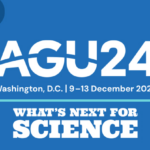 |
*New* International Union for the Scientific Study of Population (IUSSP) 30th International Population Conference 13th-18th July, 2025 in Brisbane, Australia (Abstract Submission Due 9/15/2024)
|
The IUSSP International Population Conference is the world’s largest international scientific conference on population issues. First organized in 1927 and held every four years since 1959, the conference brings together over 2,000 scientists, policymakers and practitioners from around the globe to present and discuss the latest research on contemporary population and development issues.
At the invitation of the Australian Population Association, the 30th International Population Conference (IPC2025) will take place in Brisbane, Australia at the Brisbane Convention and Exhibition Centre (BCEC) from 13 to 18 July 2025. IPC 2025 will be an in-person conference. The Conference will include over 800 oral presentations and up to 1,000 posters selected from research submitted to the Call for Papers. There will also be plenary sessions, debates and invited panel discussions featuring leading experts in the field, as well as training workshops, exhibits and side meetings occurring both before and during the Conference.
The scientific program of the Conference will be created from abstracts submitted to the Call for Papers by the submission deadline of 15 September 2024. All abstracts must be submitted online via the IPC2025 website, which is scheduled to open for submissions on 1 May 2024. Always check the IPC2025 Conference website https://ipc2025.iussp.org/ for updates.
(read more)
|
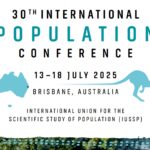 |
*New* Call for Papers: 14th Alpine Population Conference – 12-15 January, 2025, Aosta Valley, Italy (Due 9/23/2024)
|
Alp-Pop brings together scholars interested in population issues across several disciplines, including demography, economics, epidemiology, political science, sociology and psychology. The conference emphasizes empirical rigor and innovation over a given topic or geographical area, and meets the challenges of interdisciplinary and international
audiences.
Alp-Pop scholars confer both formally and informally. A traditional conference program (paper and poster presentations) mixes with group activities in a world-class winter resort. The conference location, the Hotel Planibel in La Thuile (Aosta Valley), is next to the ski-slopes, and is in close proximity to the airports of Geneva and Torino/Milano.
Please submit your paper here.
Communication of the acceptance of papers will take place by mid-October. The deadline for submission of original papers or extended abstracts is 23 September 2024.
(read more)
|
 |
NCER Hosts Virtual Office Hours for Grant Applicants (Multiple sessions in June-July)
CSDE Population Research Planning Grants (PRPGs) (Rolling deadline)
|
Population Research Planning Grants (PRPGs) are designed to provide in-kind support and/or funds of up to $25k* to support a wide array of activity types throughout the development of a research project. As part of our mission to complement rather than duplicate other campus opportunities such as the Population Health Initiative seed grants, we will consider funding things activities such as:
(read more)
|
 |
CSDE Matching Support to Supplement On-campus Funding (Rolling deadline)
|
CSDE Matching Support includes in-kind or monetary support to accompany a submission to other on-campus funding mechanism, such as PHI, EarthLab, or Urban@UW. All projects must have a CSDE affiliate who is UW faculty and is listed as a PI or co-PI, with any number of other collaborators. Note that we require (PRPGs) or strongly suggest (matching funds) contacting either Development Core Director (Steven Goodreau) or CSDE Director (Sara Curran) to discuss possibilities for your specific proposal before submission.
(read more)
|
 |
NSF: Proposals Impacting Tribal Nation Resources & Interests
|
As of 5/20/2024, NSF proposals that may impact the resources or interests of a federally recognized Tribal Nation will not be awarded by NSF without prior written approval from the official(s) designated by the relevant Tribal Nation(s).
Proposers must:
- Seek guidance from the potentially impacted Tribal Nation on activities that require review and prior approval from that Tribal Nation’s authorized designee.
- Submit a written request to the relevant Tribal Nation (based on their guidance),
- for approval to carry out the proposed activity that requires their review and approval.
- Complete the checkbox for “Potential Impacts on Tribal Nations” on the Cover Sheet. Note, lead organizations are responsible for this on collaborative proposals & proposals with subawards considered a single unified project.
- Upload one of the following into "Other supplementary documents" of Research.gov:
- a copy of the written request to the relevant Tribal Nation to carry out any proposed activity/activities that may require prior approval from them
- written confirmation from the Tribal Nation(s) that review and approval is not required
- a copy of relevant Tribal Nation approval
(read more)
|
 |
Overview of Grant Application and Review Changes for Due Dates on or after January 25, 2025
|
This notice provides the research and research training community an overview of application and peer review changes impacting grant applications submitted for due dates on or after January 25, 2025, including:
- Simplified Review Framework for Most Research Project Grant Applications
- Revisions to the NIH Fellowship Application and Review Process
- Updates to Reference Letter Guidance
- Updates to NRSA Training Grant Applications
- Updated Application Forms (FORMS-I)
- Common Forms for Biographical Sketch and Current and Pending (Other) Support
(read more)
|
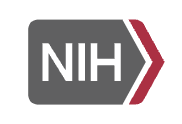 |
|
|
OPPORTUNITIES
|
Demography Events
Conferences & Calls for Papers
Funding
Employment
- Tenure-Track Associate Professor in Demography and Population Studies University of Hong Kong (Deadline: 8/31/2024)
- *New* Tenure-Track Assistant Professor in Sociology (9/1/24) Harvard University Harvard University (Deadline: 9/1/2024)
- *New* Open Rank Professor in Sociology/Environmental Studies (9/15/24) Boston College Boston College (Deadline: 9/15/2024)
- Department of Global Health – Tenure Track Assistant or Associate Professor (9/30) Emory University (Deadline: 9/30/2024)
- Senior Researcher (9/1/24) Netherlands Interdisciplinary Demographic Institute Netherlands Interdisciplinary Demographic Institute (Deadline: 9/1/2024)
- Chancellor’s Postdoctoral Fellowship in Latinx Studies (11/1) UC Santa Cruz (Deadline: 11/1/2024)
- Assistant Professor in Housing & Land Use California State Polytechnic University, Pomona (Deadline: 11/17/2024)
- *New* Visiting Assistant Professor – Sociology (Open until filled) University of Massachusetts Lowell University of Massachusetts Lowell
- Assistant Professor of Sociology (Open until Filled) Mount Holyoke College Mount Holyoke College
- Adjunct Instructor – Sociology (Open until Filled) City Colleges of Chicago City Colleges of Chicago
- Postdoctoral Scholar – Arctic Indigenous Research (Open until Filled) Pennsylvania State University Pennsylvania State University (Remote)
- Postdoctoral/Senior Research Position in the Department of Molecular Biology and the Office of Population Research (Open until Filled) Princeton University Princeton University (Remote)
- Chair, Department of Behavioral and Social Sciences (Open until Filled) Brown University Brown University
- Demographic Data Scientist – The Economic, Demographic, and Statistical Research (EDSR) Unit (Open until Filled) Fairfax County Government Fairfax County Government, Virginia
- Behavioral Scientist (Program Director) (Open until filled) Behavioral and Cognitive Sciences (SBE/BCS) Division of the NSF
- Maternal and Child Health Department Chair and Full Professor (Open until filled) University of North Carolina, Chapel Hill
- Assistant Professor in the Broad Area of Social Genomics, Behavior Genomics and Related Fields (Open until filled) Purdue University
- Postdoctoral researchers/research associates (Open until filled) Social Action Lab at the University of Pennsylvania
- Open Rank Faculty, Educator: SOPH Population Health Science (Open until filled) The University of Mississippi Medical Center
- Professor: SOPH Chair of Population Health Science (Open until filled) University of Mississippi Medical Center
- Postdoctoral Researcher (Project on social determinants of health in Puerto Rico) (Open until filled)
- Public Policy Analyst (Open until filled) Kem C. Gardner Policy Institute, University of Utah
- Research Associate in Family Demography (Open until filled) Pew Research Center
- Postdoc, Impact Data and Evidence Aggregation Library (Open until filled) Center for Effective Global Action (CEGA), UC Berkeley
- Senior Manager, Evaluation and Impact (Open until filled) Within Reach (remote/hybrid)
|
|
 |
| Center for Studies in Demography and Ecology |
csde@uw.edu
206 Raitt Hall
(206) 616-7743 |
UW Box 353412
Seattle, WA
98195-3412 |
  |
|
|
Is this email not
displaying correctly?
View it online. |
You are receiving this email because of an interest in Center for Studies in Demography and Ecology. To update your profile and subscription status, click here. |
|
|

